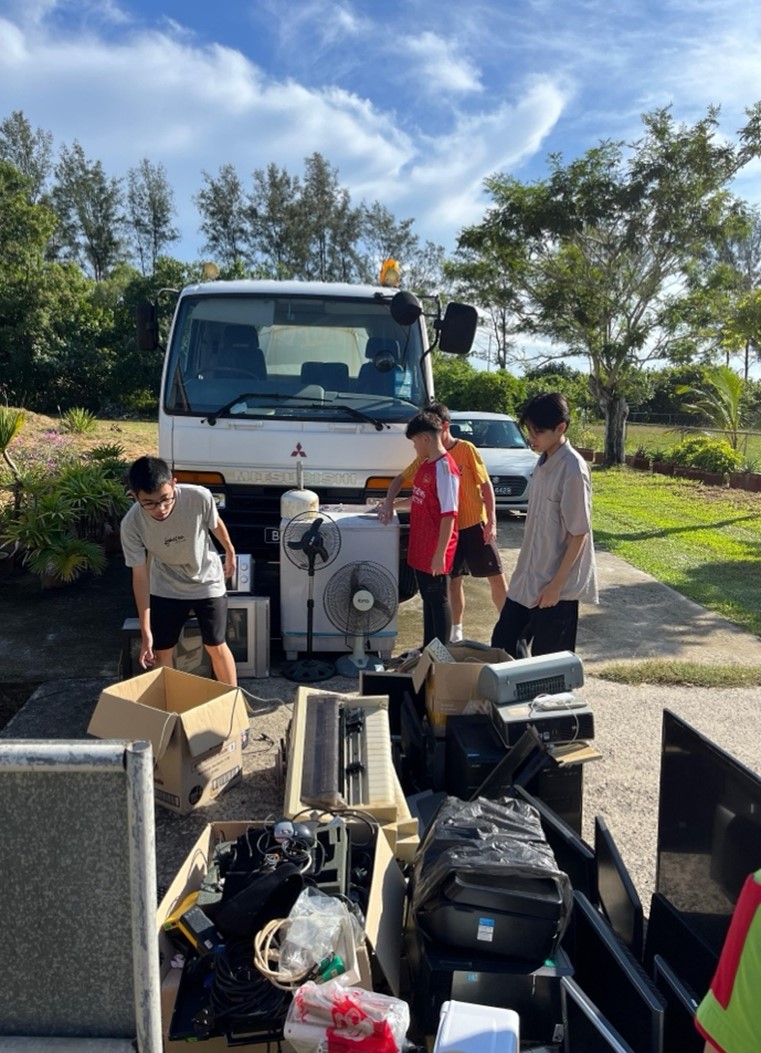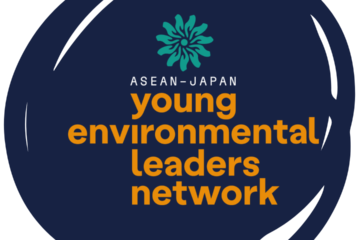*Photo: Students at Chung Hua Middle School separate different types of recyclable wastes during the event.
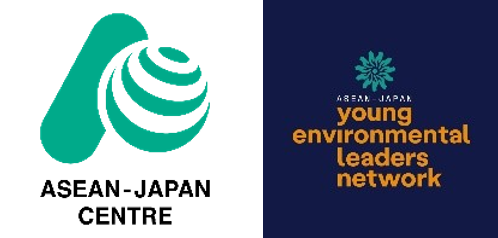
Reported by: Anna Panackal, Angelina Lau, Aaron John, Aiden Paul
1. Key takeaways
- Increased Recycling Rates: The program aimed to boost recycling participation among students and their families by making recycling more accessible. By collecting various waste materials and sending them to a recycling facility, the event prevented waste from ending up in the sea or landfills.
- Awareness and Education: The event highlighted the importance of recycling and proper waste management. Students and families learned about recyclable materials and the environmental impact of their choices, fostering better waste management habits within the school community.
- Tangible Impact: By sending the collected waste to a recycling facility, the event showcased the direct benefits of recycling efforts. Students and parents saw how their actions helped reduce landfill waste, conserve resources, and support recycling initiatives, making sustainability more tangible and relatable.
2. Main highlights
In collaboration with the science department, we announced the collection of recyclable waste materials from students and families on August 24, 2024. With the support of our principal, Dr. Chong, all class teachers posted a poster announcing the event. This ensured maximum reach and prompted inquiries from parents and students about the collection details and its aftermath.
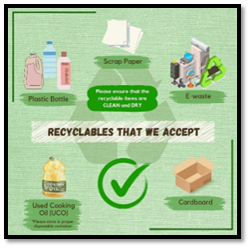
The collection began on August 25, following the announcement. The distributed poster listed the accepted recyclable materials. On the first day, we mainly collected paper and plastic waste, including covers, containers, and bottles. The second day saw larger quantities and sizes of similar waste. On the third day, we received more electronic waste, such as old televisions and keyboards. Waste segregation was done simultaneously, placing each type in its designated section, which significantly reduced processing time.
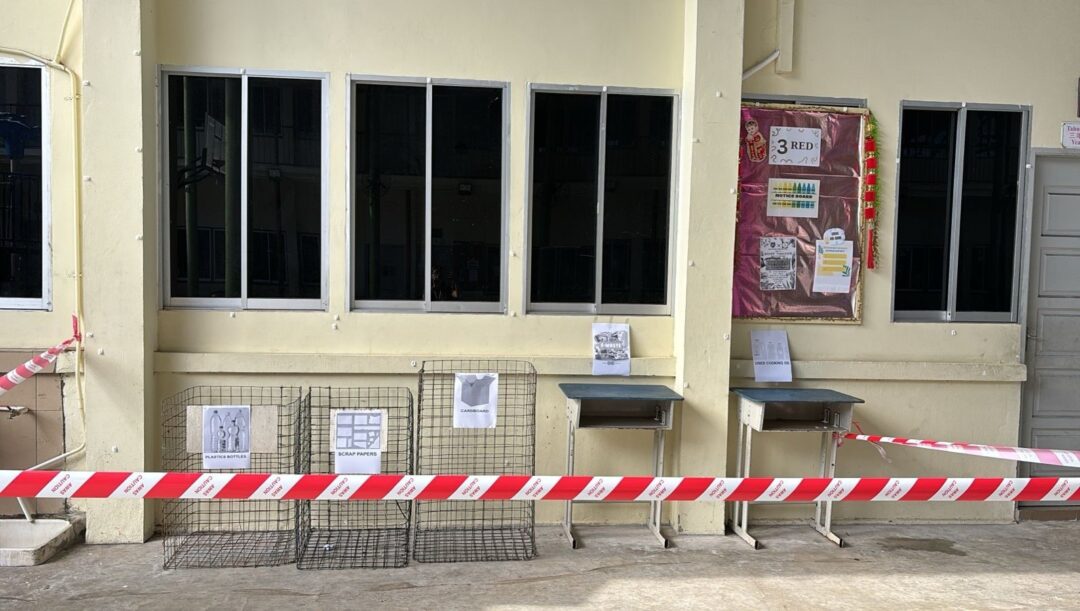
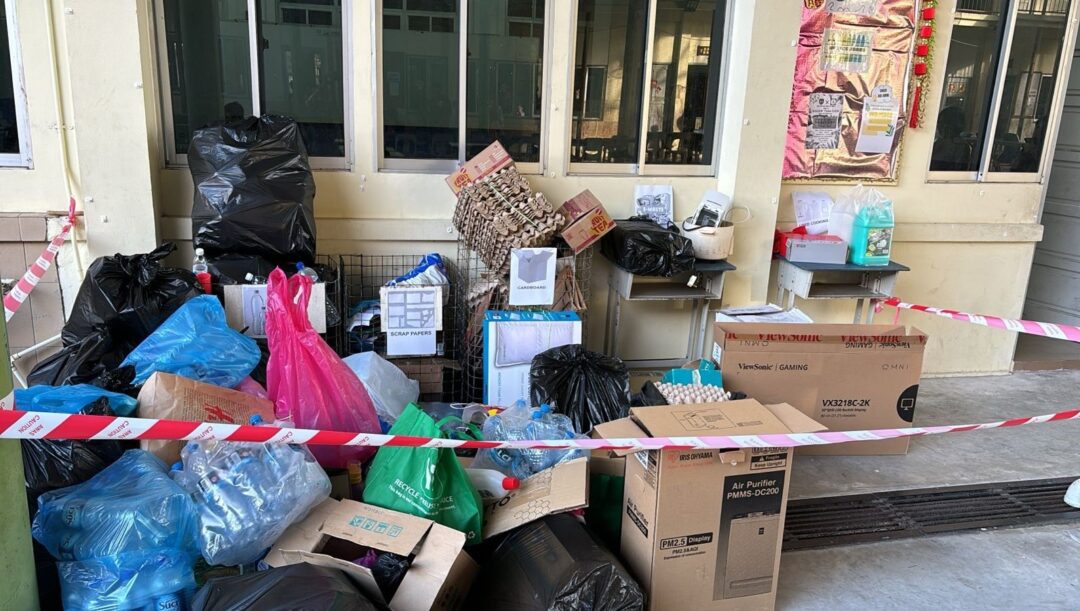
After collecting the majority of the waste, we sorted it into bags by type and prepared it for transport to the recycling facility by August 25. Student volunteers were instrumental in moving the heavy trash, assisting teachers who found it challenging. With the help of our members, a few teachers, and a dozen volunteers, the process went smoothly. The collected waste was transported by truck to the facility.
3. Outcome
In total, we were able to collect a total of 45 kg. In order to gather public opinion regarding the project, class teachers were instructed to hold brief general feedback sessions in their classrooms. The majority of the students and parents were very happy to reduce the waste in their homes and were very grateful for the event. The feedback we received reflected a positive opinion among students that they wanted to reduce their carbon footprint through sending recyclable materials to the recycling center, however it was a bit inconvenient as they had to carry and separate wastes for the first time. This finding informed us of possible activities to increase the interest of students to practice recycling in their homes.


